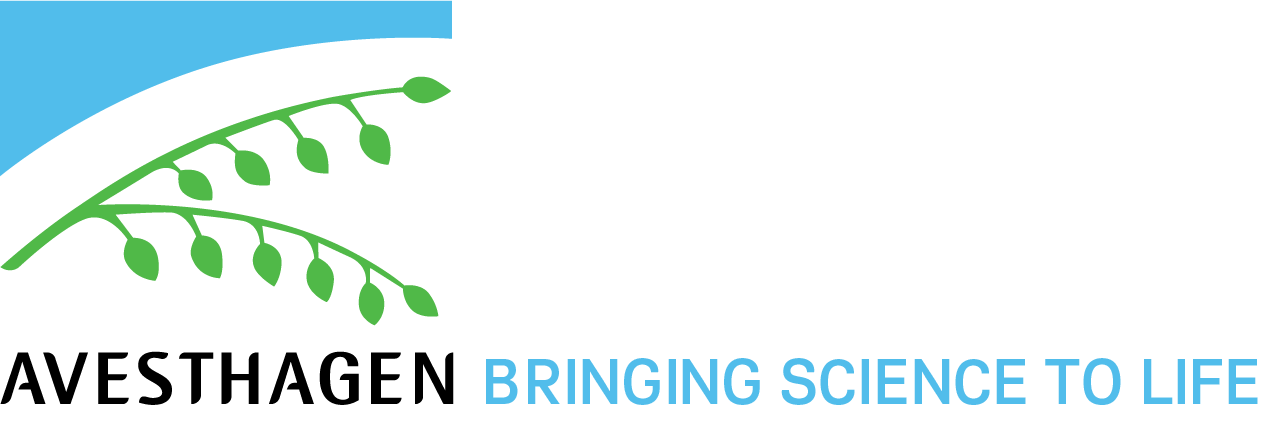Home / Our Business
Our Business
Diagnostics
Our current Science & Innovation activities are in addition to the product-oriented research and development activities that we conduct in each of these business segments. Our Science & Innovation platform is designed to function as an incubator for new discoveries and developments in order to complement and extend the scope of our existing businesses and to develop new ones.
Our current key Science & Innovation projects are The AVESTAGENOME Project®, our cancer stem cell research, our natural molecules discovery effort and our work on infectious diseases.
The AVESTAGENOME Project® is a genetic, genealogical and medical study and database of the Zoroastrian Parsi community of India, a community that is thought to be particularly genetically homogeneous. The focus of this project is the development of a systems biology database, that can be used to identify genes and other biological markers involved in specific diseases to develop new treatments and diagnostics for those conditions.
Consumer Healthcare
The main factors that contribute to the growth of the consumer healthcare market include huge demand for self-medication, growing healthcare costs, growing geriatric population who are more prone to contracting diseases, the decline in mental health, and shift from medication prescription to OTC products.
The general population’s willingness to seek alternative treatments and to try to prevent the onset of diseases associated with ageing, such as, for example, cancer, diabetes, obesity, and osteoporosis, has fueled a consumer segment that more proactively thinks about their health.
Furthermore, consumers are now increasingly aware of the strong connection between diet and disease. Of the six leading causes of death in the United States, as documented by the Center for Disease Control and Prevention (CDC), diet is implicated in four: heart disease, certain cancers, stroke, and type 2 diabetes.
Avesthagen’s Wellness and Nutrition vehicle, Avesta Nordic Research’s purpose is to support its parent company’s mission of Convergence of pharma, food, & population genetics with a predictive approach leading to Preventive & Personalized healthcare, & food security by combining nature, tradition and technology to create quality products that meet consumer’s needs for great taste, better nutrition, energy, performance cognition and disease prevention – all in a cost effective and environmentally sustainable manner.
Avesta Nordic’s distinctive strategy is to enter the nutrition market by focusing on a disease and etiology-based approach which is in marked contrast to the traditional industry approach of focusing on products and subsequently finding different applications for them.
The Company will be integrating the science-based discovery process used by the pharmaceutical industry with the marketing approach used by the consumer-packaged goods industry. The search for nutritional leads will utilise the wealth of information derived from Indian and Asian traditional medicine, the rigorous clinical validation standards used by pharmaceutical companies worldwide and the benefits will be conveyed to consumers by marketing techniques successfully used by consumer packaged goods companies.
With the extensive discovery, product development, scientific and marketing skills of Avesta Nordic Research, this business model will allow for the development of a sustained pipeline of novel and efficacious products, decrease appreciably the cost of development, and reduce the time to market.
Medical Foods
As consumers take personal responsibility for their health, a need for “food for medicine” products in human diet becomes imperative. Consumers will also manage and control the process of ageing. All this means focus on Integrated Innovation.
Functional foods/Medical foods can be described as food and beverages that are consumed for reasons beyond their nutritional content. For example, food and beverages that are consumed to maintain or improve general health and well-being or to reduce the risk of or supplementally treat certain ailments or conditions due to certain bioactive ingredients. Functional food products are essentially bridging the food and pharmaceutical markets to enable consumers to derive certain health benefits through consumption of products they already consume regularly.
Avesta Good Earth FoodsTM functional food products and dietary supplements target the growing population of health-conscious consumers around the globe. Its key products and product candidates are based upon, or include as a primary ingredient, scientifically and clinically validated plant extracts, or bioactives, sourced from traditional Indian medicine.
Avesta Good Earth FoodsTM range of products offer a distinctive advantage of great taste, natural ingredients and presentation, incorporating bioactives for management of blood sugar, cholesterol, bone health and general well-being, which distinguish it from competition. With the ‘one of its kind’ Healthy & Functional Foods range, the brands intend to drive consumers towards healthy eating using cost efficient marketing techniques. Products will be marketed through modern trade, e-grocers, institution, general trade and pharmacy stores.
Opportunities and Market Value
The global functional foods market serves various application segments including sports nutrition, weight management, immunity, digestive health, clinical nutrition, and cardio health among others.
Cardio health was the dominant segment and accounted for 24.2% of market share in 2018. It is expected to register a CAGR of 8.1% from 2019 to 2025 owing to increasing demand for functional food in cardiovascular diseases, congestive heart failure, hardening of arteries, and congenital heart defects.
Growing demand for functional foods and beverages owing to number of health objectives including, improving joint health, weight loss, and bone and muscle strength. These food products can also reduce the risk of cardiovascular diseases and type 2 diabetes by enhancing digestion.
Avesthagen’s Functional Foods portfolio promotes optimal health by reducing risk of non-communicable diseases, boosting metabolism, improving nutrition absorption, aid better digestion and help lose weight. Consumer preference for reduced sugar intake is expected to positively influence the growth.
bioPharmaceuticals
The demand for therapeutic proteins is growing. Therapeutic proteins can be used in a variety of applications including surgery, trauma, oncology, cosmetic reconstruction and chronic diseases. Current production methods are limited by the inability to produce high value complex proteins, high costs of production and long lead times before production facilities are operational.
Biosimilars, also known as follow-on biologics or follow-on proteins, are drugs that have a high level of similarity to existing biologics. They have the same qualitative and quantitative composition as the reference biological drug but are not equivalent due to differences in the raw materials used, the manufacturing process and the molecular characteristics.
Biosimilars, also known as follow-on biologics or follow-on proteins, are drugs that have a high level of similarity to existing biologics. They have the same qualitative and quantitative composition as the reference biological drug but are not equivalent due to differences in the raw materials used, the manufacturing process and the molecular characteristics.
Avesthagen Biopharmaceuticals owns 8 biosimilar molecules (2 of them in advanced stage of development) with patents, processes, manufacturing rights for global licensing, and sales & marketing rights.
Opportunities and Market Value
The Biosimilars market is highly attractive given the size, profitability, reimbursement and pricing environment of the underling biological drug industry. Specific features:
■ Market size: The successful launch of biosimilars of these blockbusters in the larger markets has the potential to be highly lucrative.
■ Limited number of competitors: Due to the challenges of entering the biosimilars market, the number of successful entrants is expected to be less, therefore competition and price discounts are expected to be lower than in more traditional generic drug markets.
■ Emerging market opportunity: Companies in emerging markets such as India and China can use the same advantage that they have in the small molecule markets. This advantage is access to skilled staff for product development and low cost staff for manufacturing
■ Contract manufacturers may be used: A number of contract manufacturers have experience in the manufacturing of biological products and those skills can be applied to the biosimilar market. This may mitigate the issue of existing generic players not having biosimilar manufacturing experience or capacity.
India has the potential to become a global player in similar biologics or biosimilars. The global market for biosimilars will be $240 billion by 2030 and the Indian domestic market is poised to be valued at about $40 billion.
Environmetally Adjusted CropsTM
Agriculture Biotechnology will play a significant role in moving the paradigm from rain-fed agriculture to consistent and reliable agriculture to keep up with the needs of the population. Biotech enhanced acreage continues to grow. The linkage between food and fuel has resulted in a need for new innovation drivers and new product opportunities. The new green revolution will be led by the new gene revolution.
Climate change combined with poor soil and lack of water, rising incomes and population has today resulted in food shortage. It is an important realization that the world will need to leverage technology to deliver food, feed, fiber, and fuel to sustain and reconstitute in order to address the challenges of energy and environmental concerns.
Therefore, given the availability of gene editing technologies like CRISPR and conventional genetic engineering technologies, we have developed new crops with enhanced traits such as:
- increased tolerance to environmental stress, biotic or abiotic
- increased nutritional content
- higher yields
- production of seeds with increased oil content
AVA Seeds® has focused on gene discovery and Environment Adjusted Crop TechnologiesTM to develop crops which yield more productive food to meet the growing needs of farmers, processors and consumers globally. The Company maintains a large portfolio of product development work and intellectual property which focuses on abiotic stress resistance and improved nutrition.





